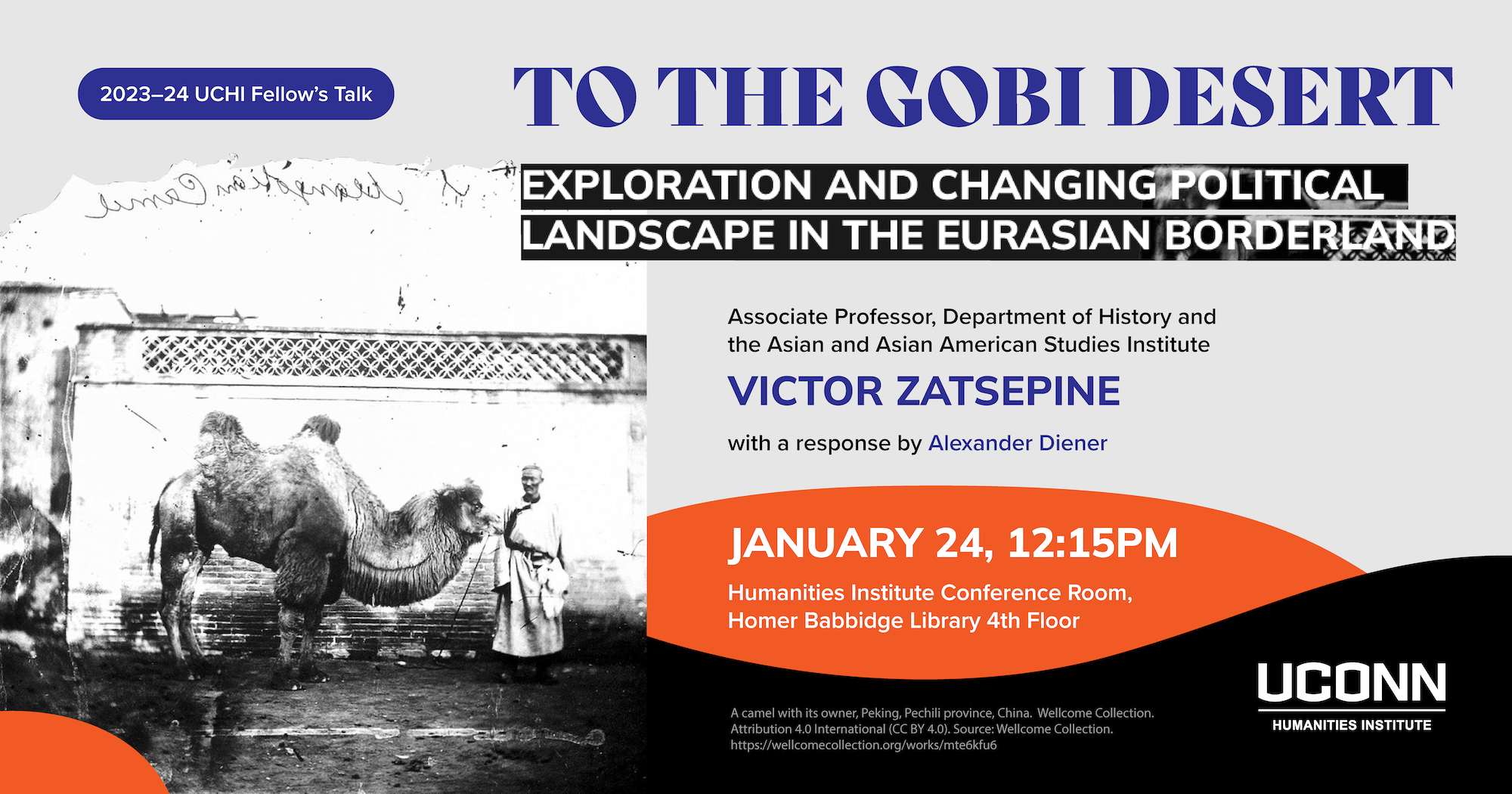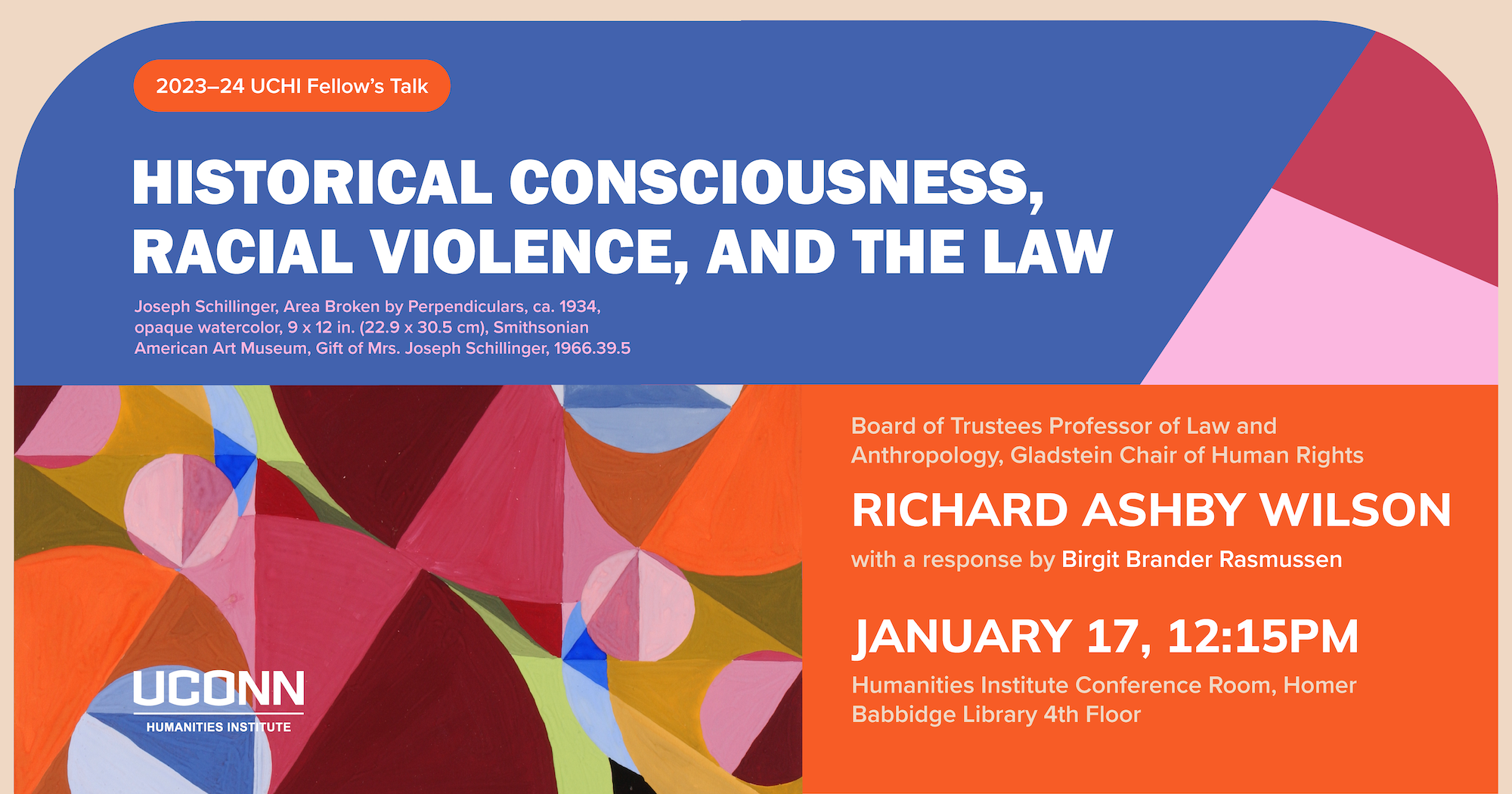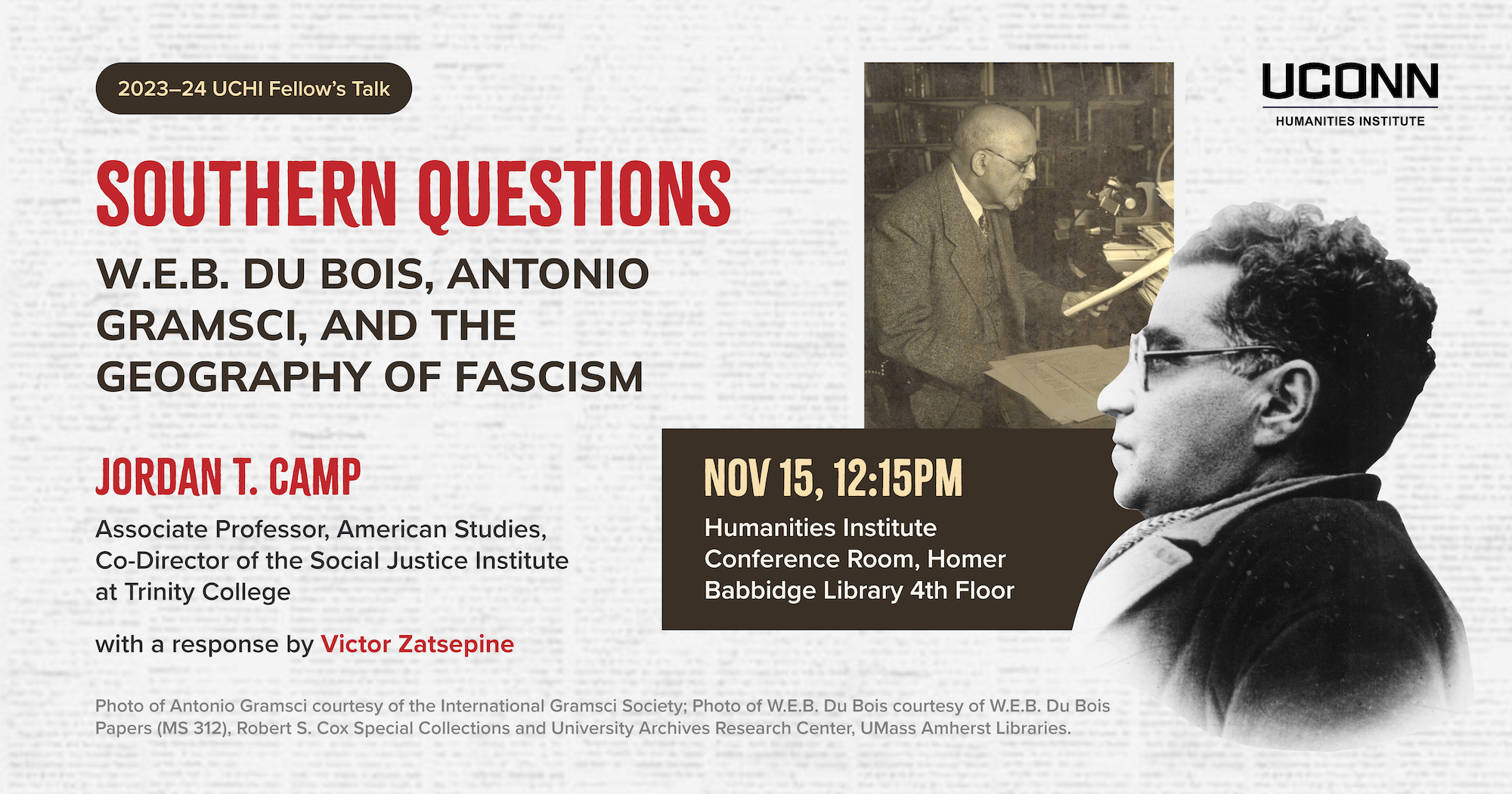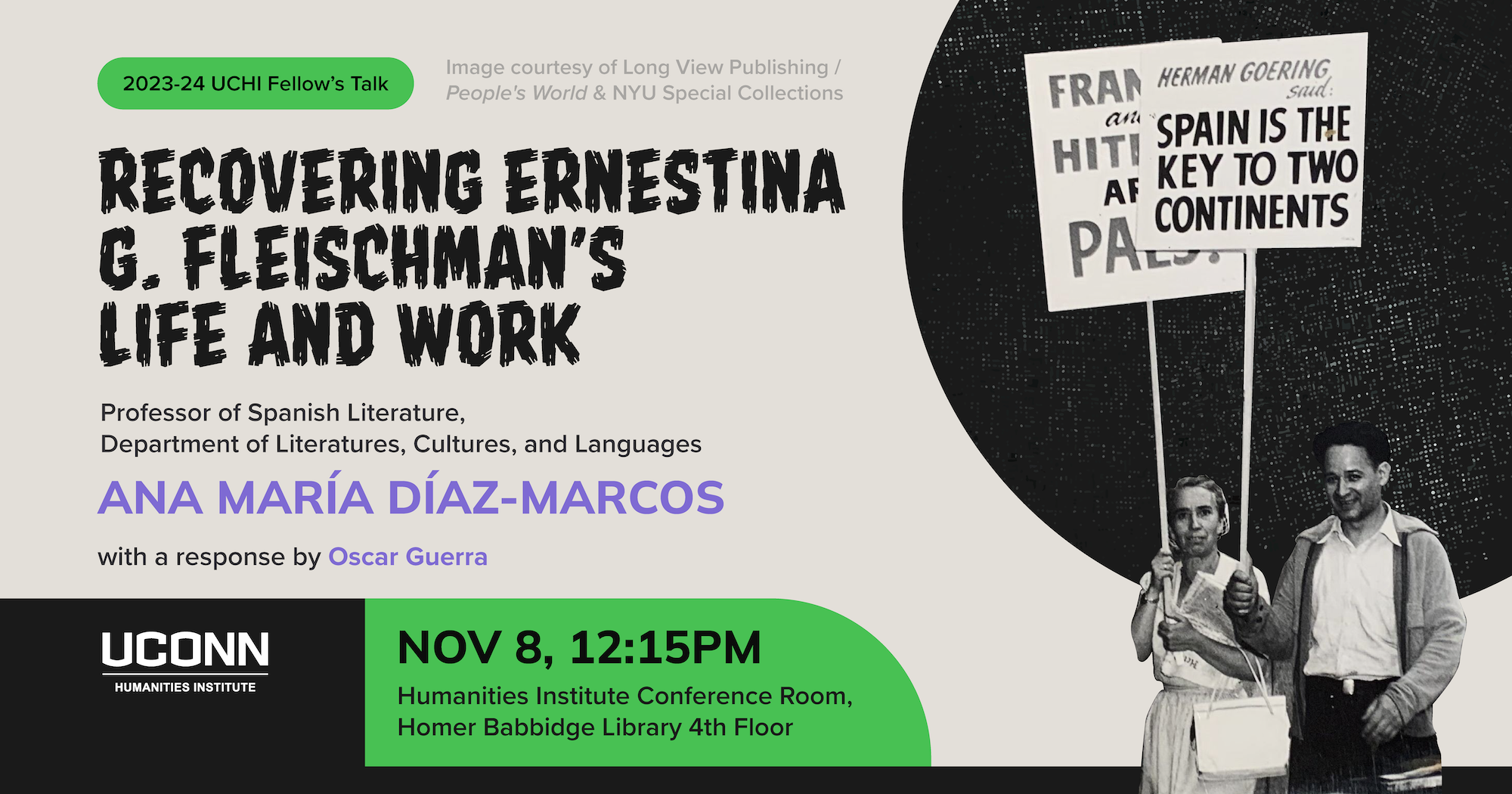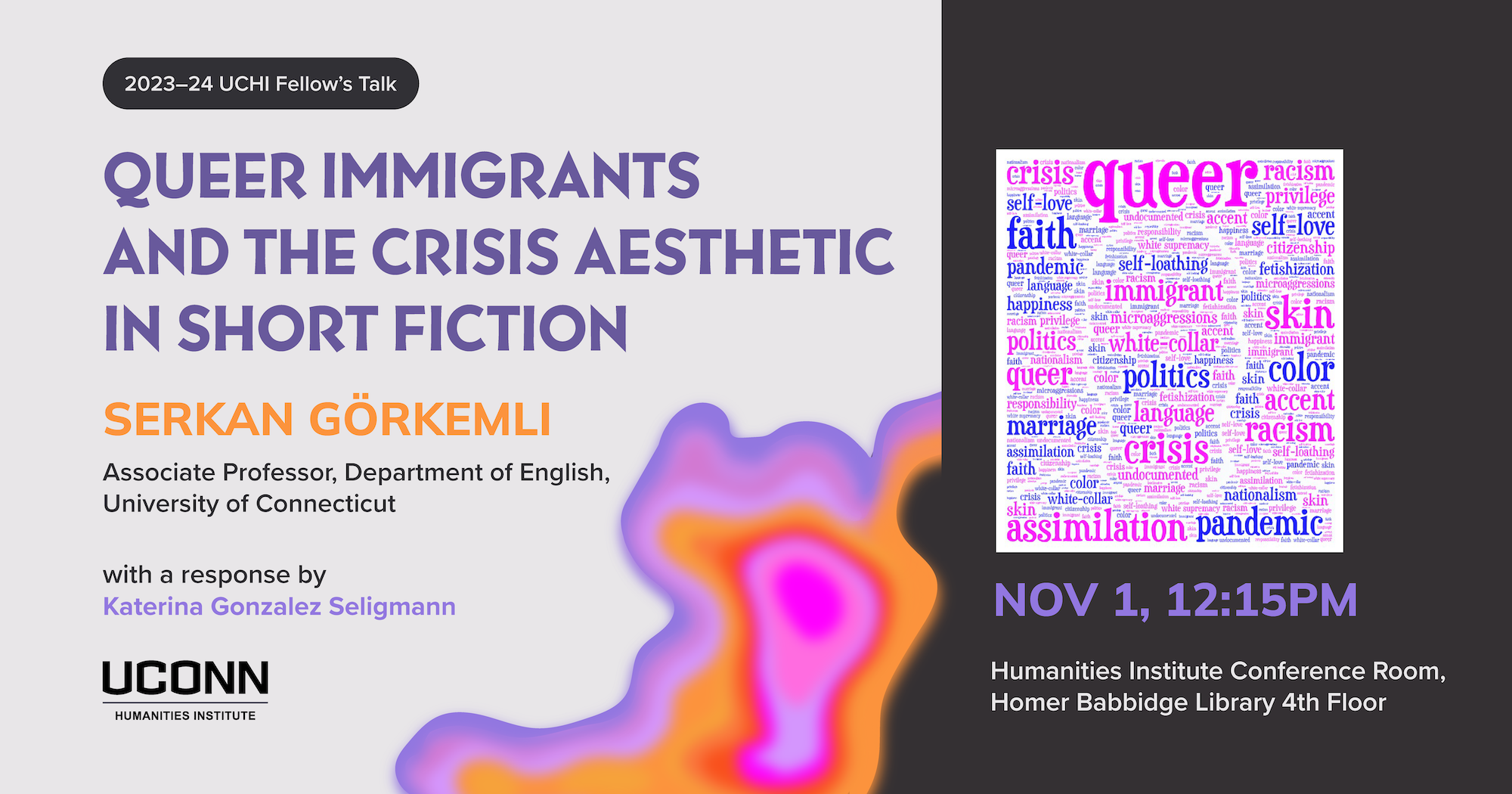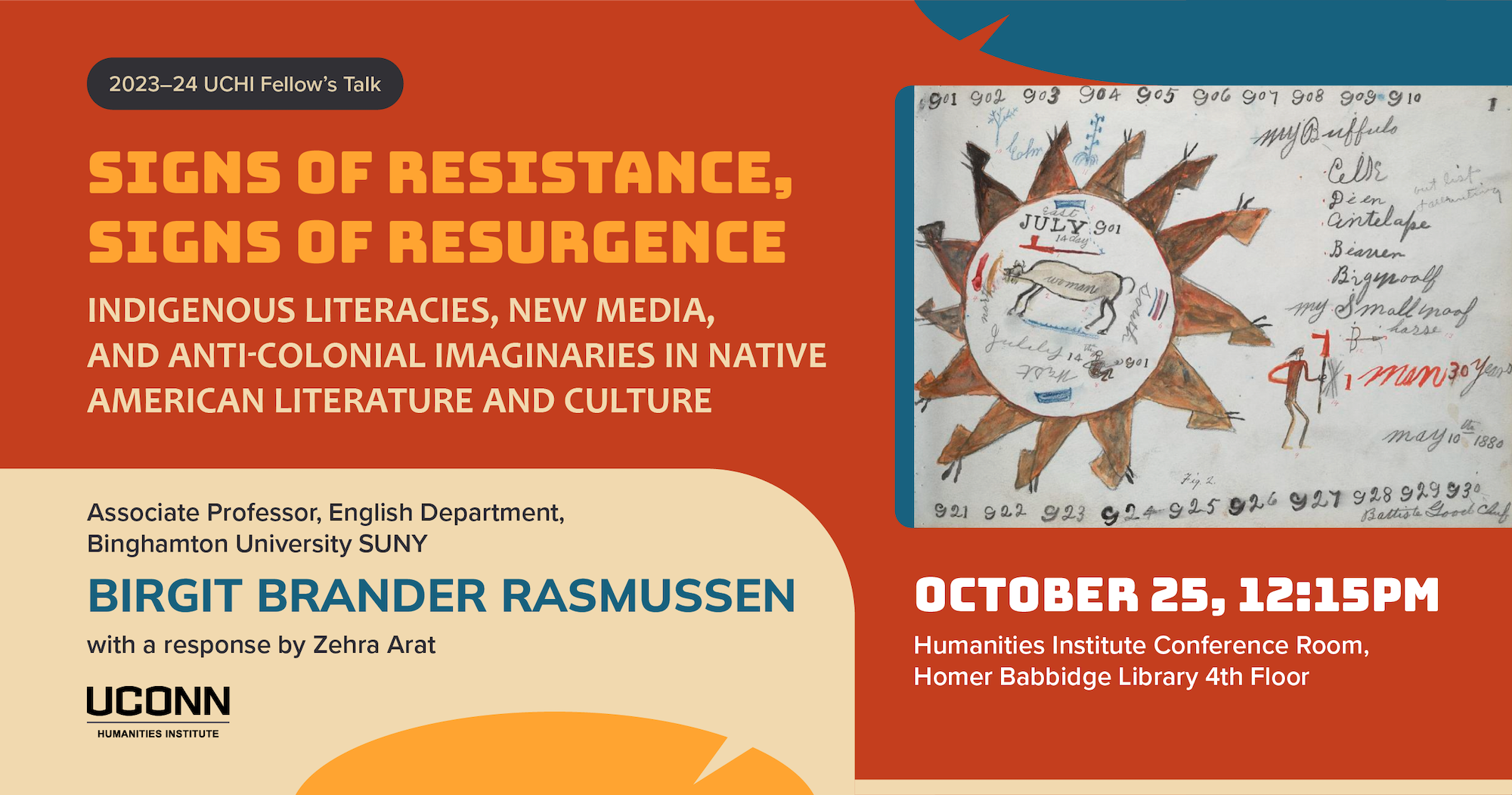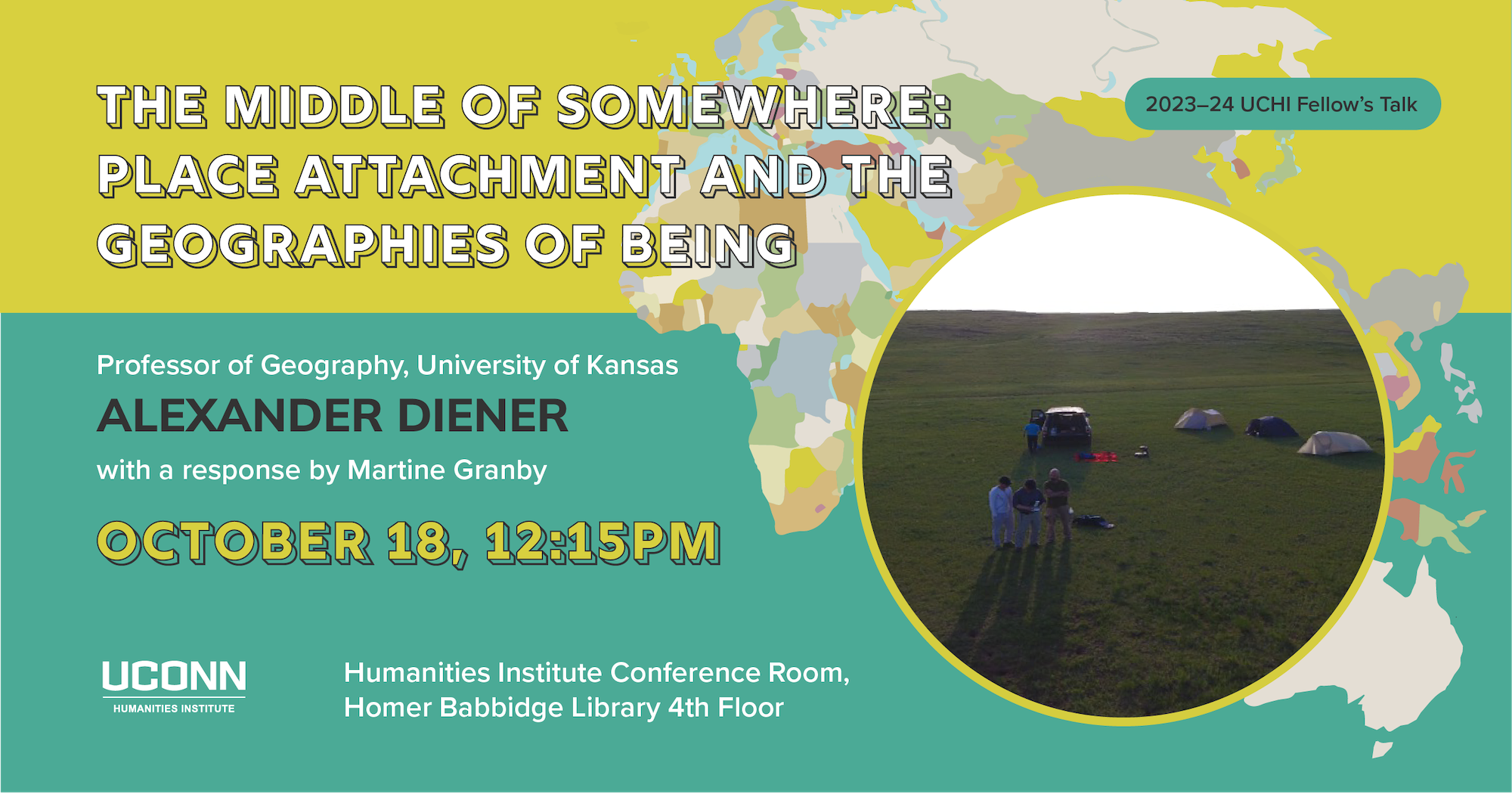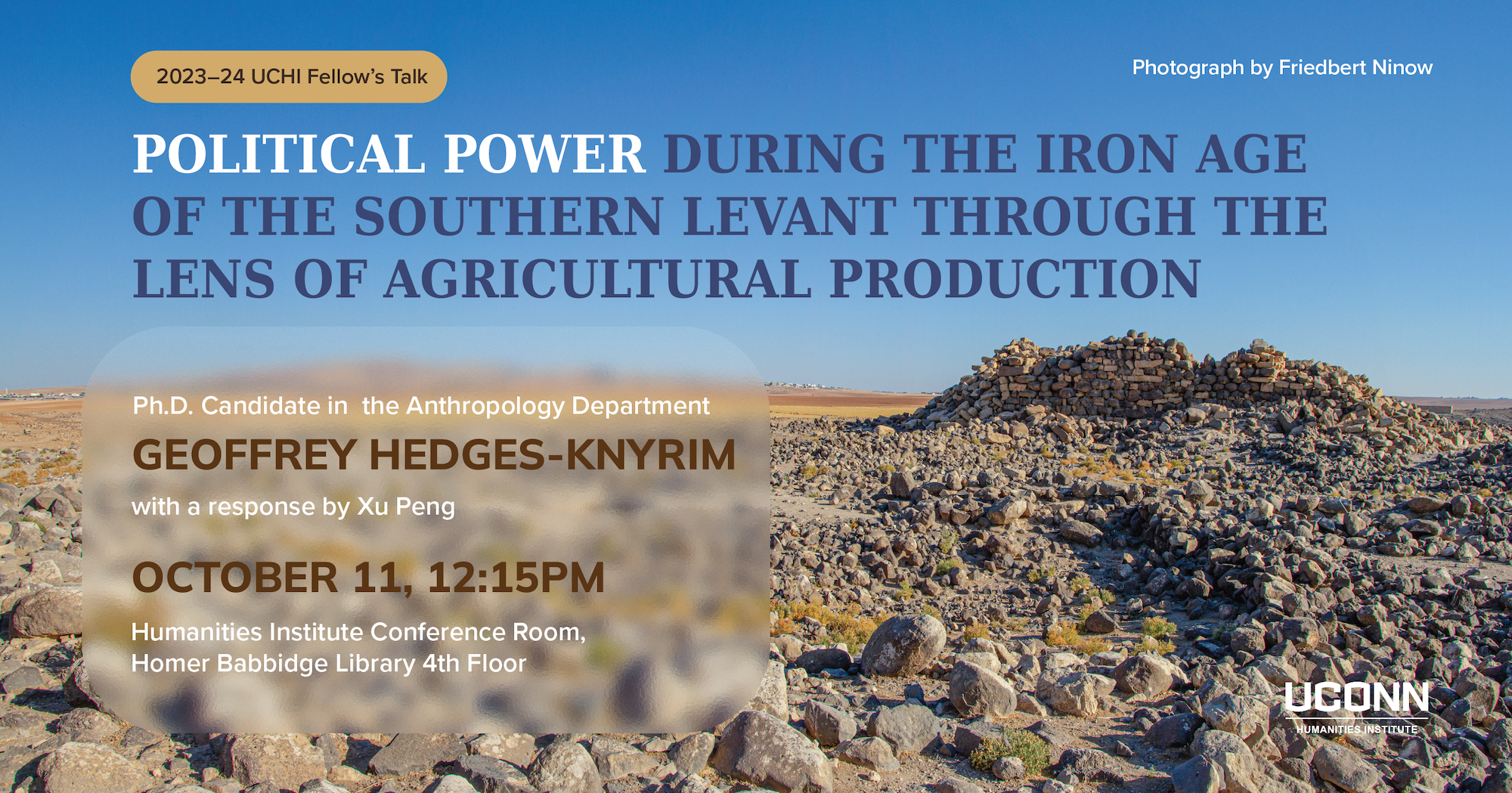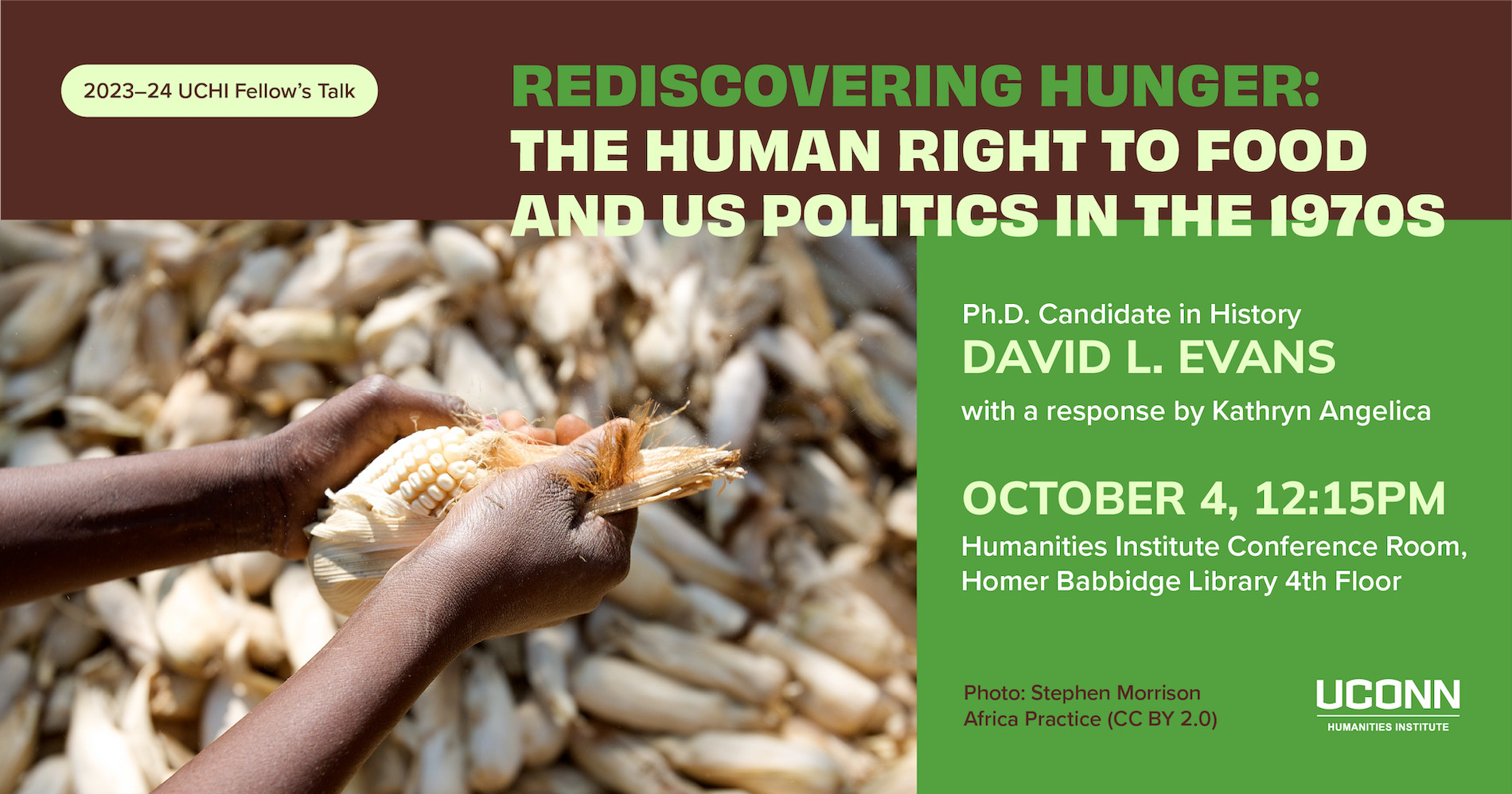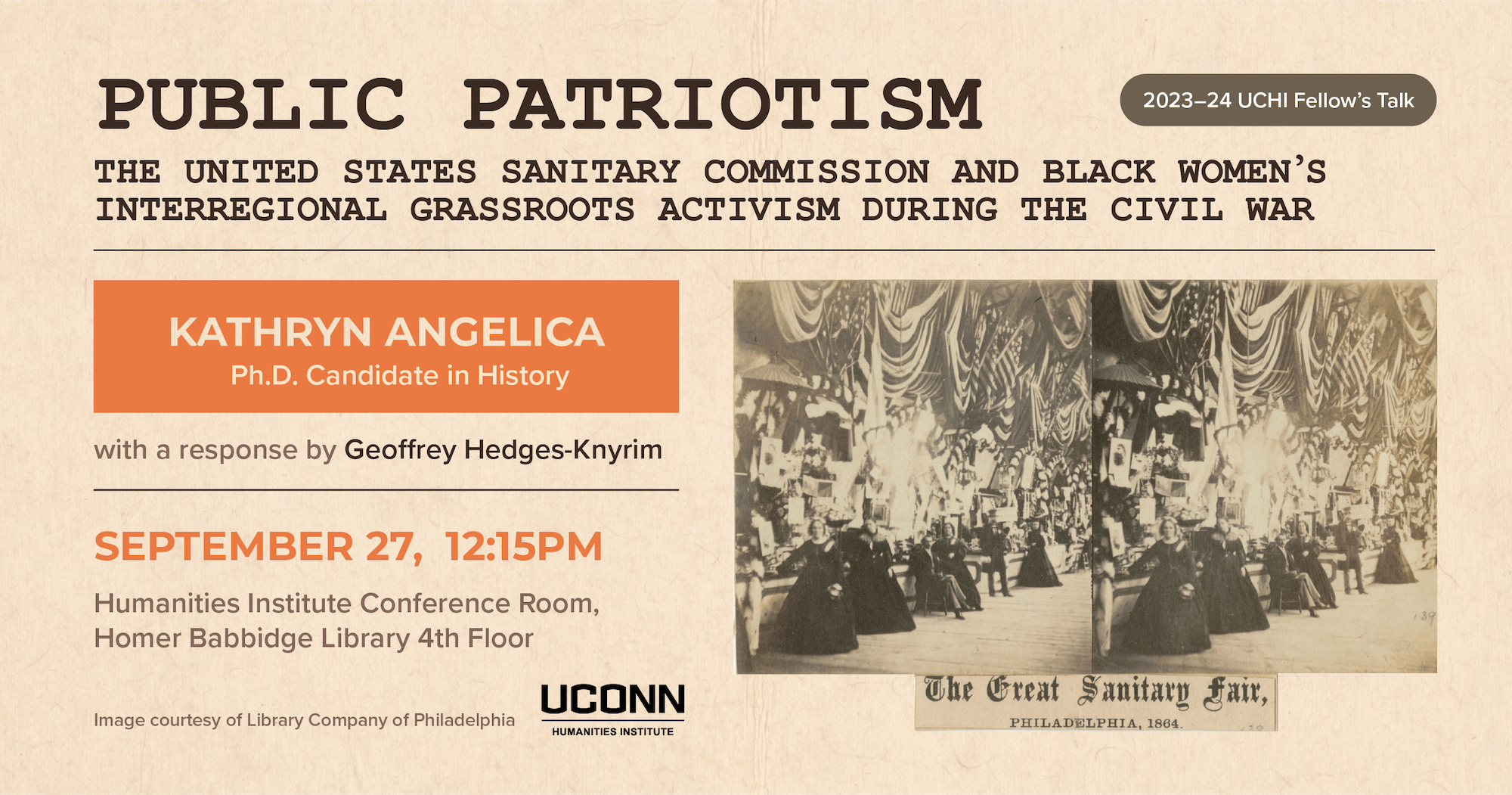To the Gobi Desert: Exploration and Changing Political Landscape in the Eurasian Borderland
Victor Zatsepine (Associate Professor, History & AAASI, UConn)
with a response by Alexander Diener (Geography, University of Kansas)
Wednesday January 24, 2024, 12:15pm, Humanities Institute Conference Room (HBL 4-209)
The event will also be livestreamed with automated captioning.
During the 1920s, many international explorers and scientists visited the border regions of the newly established Republic of China, Mongolian People’s Republic and Soviet Russia. These expeditions took place at a time of profound sociopolitical change in this region and of growing international rivalry. This talk analyzes the role of these expeditions in transmitting ideas, education, and scientific knowledge about the Gobi Desert. It also questions the purpose of these expeditions, as well as the relationship between modern archaeology, geology and paleontology and Eurasian politics.
This talk is part of my larger project “Unsettling the Sino-Mongol-Russian Borderlands” which investigates the dramatic transformation of the borderland communities between the emerging nation-states of China, Mongolia and Soviet Russia in the early decades of the twentieth century.
Victor Zatsepine is an associate professor appointed jointly to the Department of History and the Asian and Asian American Studies Institute at UConn. His research is focused on the history of modern China, the Russian Far East, and Northeast Asian frontier lands. He embraces transnational and trans-regional approaches to examine the movement of people, ideas, and goods across borders. After the publication of Beyond the Amur: Frontier Encounters Between China and Russia, 1850–1930 (UBC Press, 2017), he has continued research on East Asian frontiers, regionalism, border towns, the Chinese and Russian diaspora, migration and Western Imperialism. Over the past decade he has presented his research at major international conferences and workshops and in published articles.
Alexander Diener is a Professor of Geography at the University of Kansas. His interests include borders, urban landscape, place attachment, axial development, migration, and diaspora. He possesses area studies expertise in Central Eurasia and Northeast Asia, having worked extensively in Russian borderlands. Alex has authored and edited nine books, most recently Borders: A Very Short Introduction (2023), The Power of Place in Place Attachment (2023), Invisible Borders: Geographies of Power, Mobility, and Belonging (2022), and Cities as Power: Urban Space, Place, and National Identity (2019). His work has been funded by the NSF, SSRC, IREX, AAG, and the MacArthur Foundation. He has held fellowships at the Kennan Institute of the Wilson Center, the American University of Central Asia, Mongolia National University, George Washington University’s Elliott School of International Affairs, Harvard University’s Davis Center, and Fulbright’s Regional Research Scholar for Central Asia. At UCHI, Alex is writing The Middle of Somewhere, a book about the extensive but understudied effects of place attachment on the human condition.
Access note
If you require accommodation to attend this event, please contact us at uchi@uconn.edu or by phone (860) 486-9057. We can request ASL interpretation, computer-assisted real time transcription, and other accommodations offered by the Center for Students with Disabilities.
